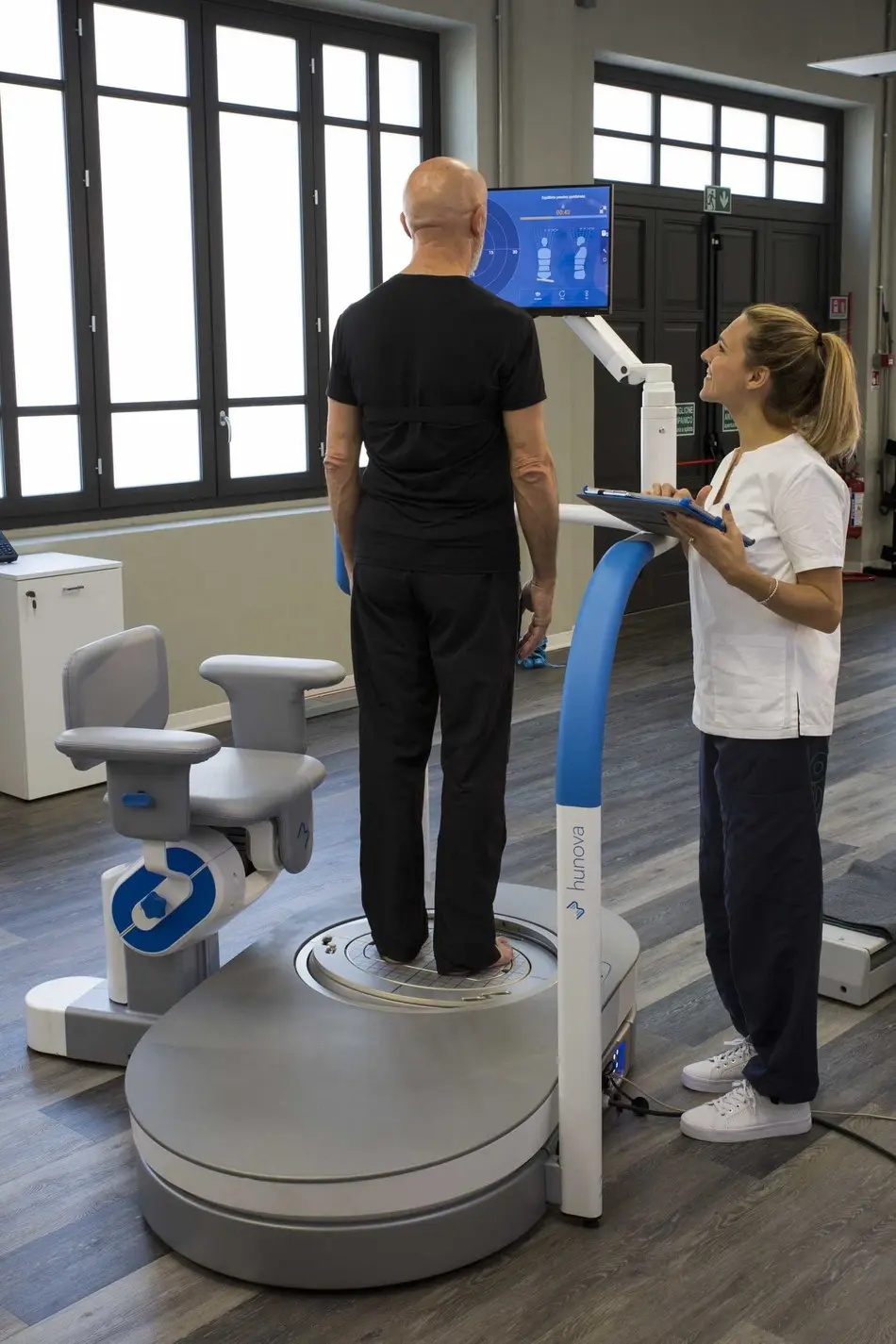Smith+Nephew today announced a marketing collaboration with Movendo Technology (Genoa, Italy) that will add personalized robotic patient rehabilitation capability to Smith+Nephew’s Real Intelligence enabling technology solutions, creating a fully digitized patient pathway from the pre-op stage to post-rehab phase.
The collaboration has launched in Europe and will expand to other regions in the near future.
Movendo Technology’s multifunctional rehabilitation device, HUNOVA, is able to analyze 130 different biomechanics parameters of the lower limb before and after surgery, generating a bespoke functional evaluation knee index. This provides a personalized patient recovery program to support the return of strength and function of the joint’s articulation. The index can also be extended to the hip and ankle.
Smith+Nephew’s Real Intelligence ecosystem addresses clinical challenges through the continuum of care including patient engagement, pre-operative planning, digital and robotic surgery, post-operative assessment, and outcomes measurement. Smith+Nephew’s next-generation robotics-assisted platform, the CORI™ Surgical System, is scheduled to launch in Europe during the first half of 2021 after a successful introduction in the US last year.
“We are thrilled that this collaboration will start in Europe,” said Peter Coenen, President EMEA, Smith+Nephew. “By combining our innovations in robotics-assisted surgical systems with HUNOVA Robotic technology, we bring together personalized implant placement and soft tissue balancing with a rehabilitation treatment to deliver greater benefits to patients, accelerate recovery and improve function.”
“We are extremely proud and excited about this new partnership that will make robotics-assisted surgery and rehabilitation an integrated, more effective, and engaging process,” said Simone Ungaro, CEO of Movendo. “I am looking forward to bringing this innovative concept world-wide in collaboration with Smith+Nephew.”
The collaboration further emphasizes Smith+Nephew’s commitment to data-driven enabling technologies that allow our customers to provide the highest level of care to their patients.
